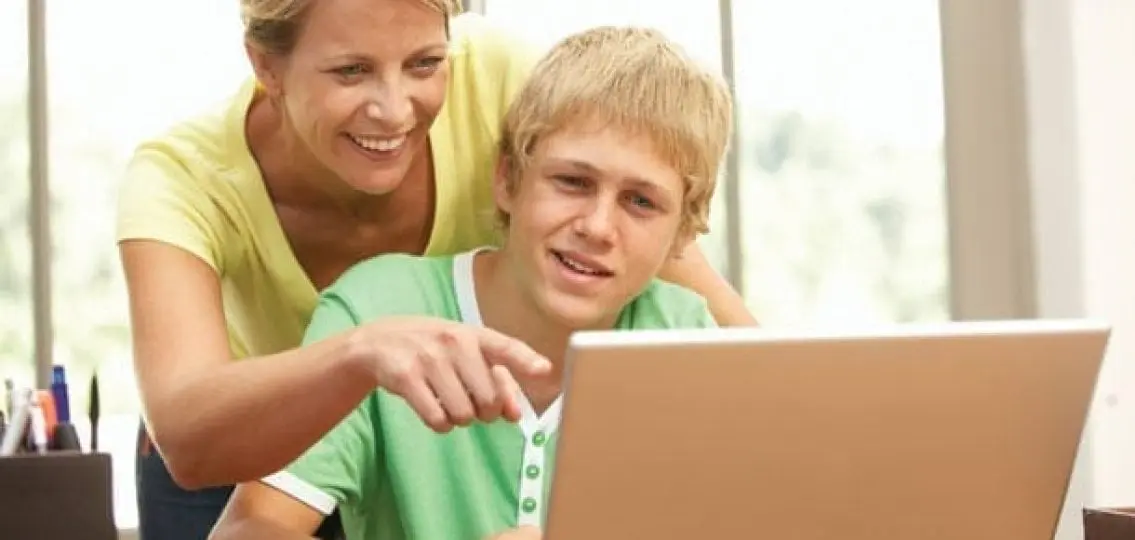It’s not uncommon to see Seth and Trinity daily on social media. Their mom posts about them regularly with humorous captions and pictures of their tousled hair–half asleep at the breakfast table, practicing the clarinet after school. Saturday’s soccer game and backyard romps with the dog are all fair game for sharing on Facebook and Instagram.

Seth and Trinity’s mom is most definitely not alone. A national survey from the University of Michigan C.S. Mott Children’s Hospital found that half of moms and a third of dads acknowledge they share information about their kids online. And three quarters of parents can easily point to other parents who overshare on social media.
Sharenting: A Definition
The practice even has a name. It’s called “sharenting.” While we may be able to get away with it while our children are young, as they head into adolescence, sharenting can have repercussions.
That includes the fact that your adolescent might find it downright embarrassing.
“My friend’s mom is always tagging her on Instagram or making comments on her posts,” notes 13-year-old Layla Simpson.
“Ugh, I’d die if my mom did that.”
Indeed, for this digital generation, Instagram and other social media platforms are a lot like the mall or the skating rink were back when you were an adolescent: a place to hang out with friends. Consider, then, how you would have felt had your mom or dad showed up, photo albums in hand, ready to jump into the conversation.
Then there’s the possible impact on your adolescent’s real-world life. Sure, that may seem improbable, but it is a possibility, say the experts. Social media activity can live on forever, and many more people are privy to our activity than most of us may realize.
“We need to have real conversations about who is going to see the posts and how long they’re going to be there,” says Sarah Clark, MPH, associate research scientist at the Child Health Evaluation and Research unit at the University of Michigan.
“Someday your child is going to want to get a job, go to college, make a team, and other adults may be able to find and look at these posts online. It’s not just your friends seeing them.”
Before You Sharent on Social Media:
1. Press pause for a moment.
“Parents should ask themselves whether their teenagers would be comfortable with what they plan to share online,” recommends Dr. Lisa Damour, a clinical psychologist and author of the books Untangled and Under Pressure. “If the answer is yes, the parent should still go ahead and get the teen’s permission before posting. If the answer is no, the parent should reconsider whether social media is the right place for sharing that information.”
And when it comes to commenting on your teenager’s social media activity?
“This depends heavily on the nature of the relationship between the parent and the teen,” adds Damour, who’s also the director of the Laurel School’s Center for Research on Girls in Shaker Heights, Ohio. “I can imagine some families where commenting and tagging would be comfortable for everyone involved. But in other families, it would feel intrusive to the teen. Before proceeding, parents should figure out which camp they—and their teens—are in.”
2. Think about who else may see your post.
It’s important to remember that on many social media platforms, it’s often not just your friends who’ll see a post. It may be all of your teenager’s friends. Or friends of your friends, which means a whole lot of people you don’t know.
In fact, parents may inadvertently reveal information that a mean-spirited peer might use against their adolescent, notes Robert Siciliano, a security expert and author of several books on cyber-security. What’s more, he adds, well-intentioned sharing can also become a privacy or even security risk. Posting information about daily habits, for instance, can clue others into the behaviors and location of members of your family.
3. Adjust your privacy settings.
Siciliano recommends that parents (and their teenagers) lock down settings so that only trusted people can see their posts. Parents can even consider using settings to create a closed group to share their children’s lives with close friends and family members (watch our video to find out how).
As you decide whether or not to share, note experts, it’s helpful to remember that your goal, as a parent, is to keep open the lines of communication, and your actions on social media may have the opposite effect.




